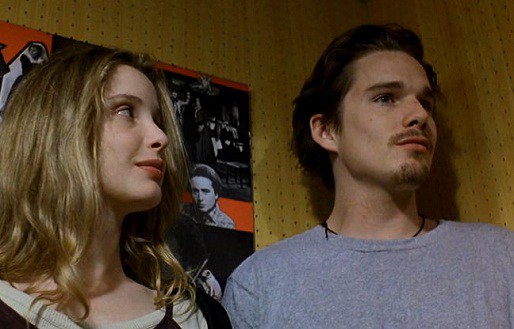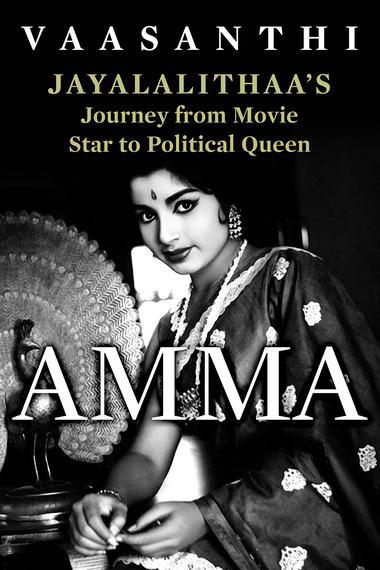Despite premiering 19 years prior to my first viewing of it, I immediately developed a special, personal connection to Richard Linklater’s Before Sunrise (1995), as someone who was the same age as Ethan Hawke’s Jesse, with similar concerns about personal and professional ideals just coming out of college and entering adulthood. I originally viewed the film through an entirely personal and emotional lens, because I related so much to the conversations shared between Jesse and Celine as they roamed the streets of Vienna. At first, the natural, simplistic style of the film mattered little to me and the only other film by Linklater I had seen before was School of Rock (2003), so the loose-narrative and philosophical meanderings of Linklater flew right over my head as established auteur patterns.
Upon revisiting Before Sunrise, as well as its sequels, Before Sunset (2002) and Before Midnight (2014), I’ve found that while I still admire these films, the reasons why have changed. This is due to multiple factors, ranging from my growth as a cinephile who’s learned how to view films in different ways, to personal, as someone who wasn’t the same 23-year old with the same personal concerns of the characters when I viewed the films previously. 9 years from now, re-watching Before Sunrise will surely be a different experience than how I view it now.
Since my first viewing of Before Sunrise, I’ve become more familiar with Linklater’s work and grown more fond of his loose-narrative sense and humanistic approach. Now, my appreciation of Before Sunrise doesn’t wholly reside with the personalities and conversations of Jesse and Celine, and more with the way Linklater depicts idealistic youth in concentrated moments in time. I also think more about the development of Jesse and Celine as characters, with the existence of two more Before entries. It’s interesting that I find myself more affected by the conversations in Before Sunset than I do Before Sunrise, possibly because, age-wise, I’m leaving my Sunrise stage and entering my Sunset stage. Yet, there are other elements of these films that change as I also evolve as a film enthusiast.
While I may have initially been immersed in the dialogue of Before Sunrise, I view the pacing and development of Jesse and Celine’s relationship as a very natural-feeling one. The philosophical content of their dialogue exchanges may have been my primary reason for initially relating to them so much, but now I attribute the natural progression of their relationship to Linklater’s ability to let his characters breathe within the narrative. He provides them with the time and space for their love to blossom, never making the movie feel like it has to hit certain genre beats most movie romances would be obligated to do. I also laugh less at the content of their discussions and more at the way those discussions are charmingly presented and performed by Hawke and Delpy. Seemingly unnecessary scenes and pointless conversations are the moments where the romance feels like its progressing naturally. It’s unfortunate then, that, in a topic fitting as a Jesse/Celine discussion, no human (and therefore, no film) can remain perfect.

This brings me to the core of why I held Before Sunrise in such high regard, as it is no longer the perfect romance movie I once thought it was. While I still admire it for what it meant to me at one point, my own personal views have changed in similar ways that the characters do from Sunrise to Sunset, to Midnight. Re-watching the film forces me to confront scenes that I now view as somewhat boring, and I can’t enjoy them on the personal level I once did. However, I can appreciate these thematically empty moments in a way that’s more meta-textually apt to what Linklater might have been going for. My appreciation has evolved from personal to perhaps more theoretical. What I mean is that there is a sense of wasted time, or rather, a mindset in the film that escapism is a preferred method of existence among youth; a very “Gen-X” sentiment. The premise of the film sounds like an escapist narrative in its very nature, too. However, by the film’s conclusion, the characters are forced to face the scary reality of their temporary situation, and they struggle to find a way to make it last in a practical and realistic way. Then, my heart swelled at the thought of Jesse and Celine never seeing each other again, but now, I appreciate the emotional drama that Linklater’s script and the starring performances manage to pull off from a more critical perspective. As time passes, critical thought sometimes settles in and replaces initial emotional response.
Yet, I would also argue that my emotional responses also change. Specifically, nostalgia also plays a large role in why I love Before Sunrise differently now than then. In a way, the nostalgia I have from remembering how I felt when watching it for the first time provides me with a new emotional response to the film that would have been impossible for me to experience upon first viewing. At its essence, the Before Trilogy is love in motion. As Jesse points out in the moment he convinces Celine to join him in Vienna, it’s a form of “time-travel”. Though, as I interpret it, this “time-travel” is less about imagining ourselves at different points in time, but rather a very simplistic, perhaps Linklater-esque, view of traveling, growing, and changing in real-time with Jesse and Celine on their romantic journey; responding and acclimating to the environments Jesse and Celine find themselves in physically (Vienna, France, Greece) and emotionally (meeting for the first time, reuniting years later, contemplating their marriage). And I predict, as I grow older and my critical views change, Before Sunrise and its sequels will also change upon revisit (not to mention the possibility of a fourth entry down the line). The fact remains though, that for me, the nature of Linklater’s trilogy is how time and experience forces people and their views to change. Thus, the currently shifting perspective I have on Before Sunrise is a perfectly fitting one.
Advertisements Share this:




